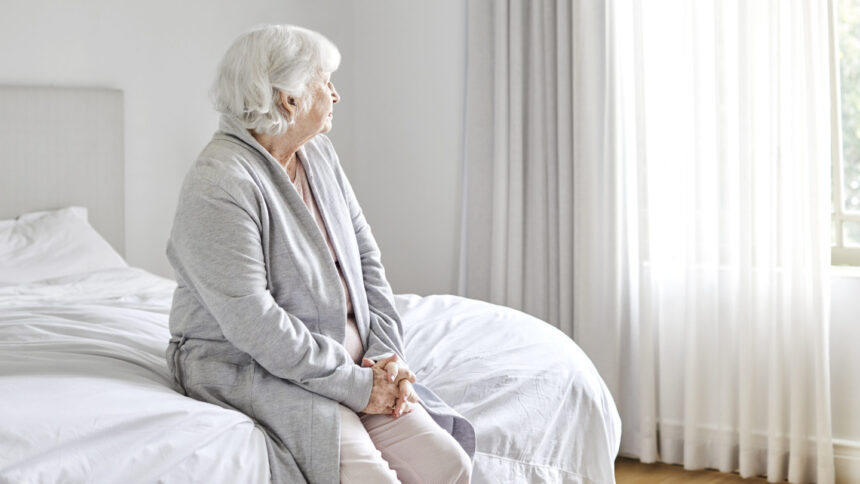
Social isolation among seniors can increase the chances of admission to nursing homes, and programs to increase their socialization could reduce healthcare spending, new research shows.
Research into the effects of social isolation and loneliness among older people has well established a correlation to poor health outcomes. But a new study published in JAMA Internal Medicine examined the link between social isolation and placement into nursing homes. Authors believe it is the first study to examine that relationship.
“The implications of social isolation for adverse health outcomes have become increasingly salient in the context of the COVID-19 pandemic and its aftermath,” the authors noted. “Research examining the burden of social isolation on hospitalization and nursing home use among older adults is critical to informing efforts that have stemmed from the pandemic to reduce social isolation among older adults.”
In 2021, McKnight’s Home Care published an award-winning, five-part series examining the impact of chronic loneliness on home-bound seniors and strategies and programs to tackle the growing problem. Throughout the pandemic and into this year, McKnight’s also has published articles looking at the effect of nursing homes’ strict limits on visitors and isolating seniors within facilities as part of infection control protocols to limit the spread of COVID-19. In February, McKnight’s reported on a study from the nonprofit Altarum that looked at how isolation and loneliness contribute to lingering grief among residents and staff at nursing homes.
“People were dying from social isolation and loneliness during the pandemic,” Christy Avery, Altarum’s project lead on the study, told McKnight’s.
The new cohort study from eight researchers reviewed responses from 11,500 seniors drawn from the Health and Retirement Study (HRS) panel data from March 1, 2006, to June 30, 2018. Respondents were scored on a six-item, objective measure of social isolation such as marital status, living arrangements, contact with family and friends, and participation in group activities. The study found that the higher the “isolation score,” the greater likelihood that the respondent entered a nursing home or SNF within two years. There was no corresponding link between social isolation and hospitalizations, based on the data.
The authors noted that the study can be used by public health officials and healthy systems to develop programs and interventions to reduce social isolation.
“Despite robust evidence regarding the associations between social isolation and poor health, few studies have examined its implications for costly forms of healthcare use,” the authors wrote. “Older adults who are socially isolated tend to have fewer caregivers, potentially increasing their reliance on nursing homes for postacute recovery and long-term care. Furthermore, nursing homes may offer safe living environments and fulfill important social needs that might otherwise go unmet for older adults with limited social contact at home or in the community.”
The study is titled “Association of Social Isolation With Hospitalization and Nursing Home Entry Among Community-Dwelling Older Adults.”




